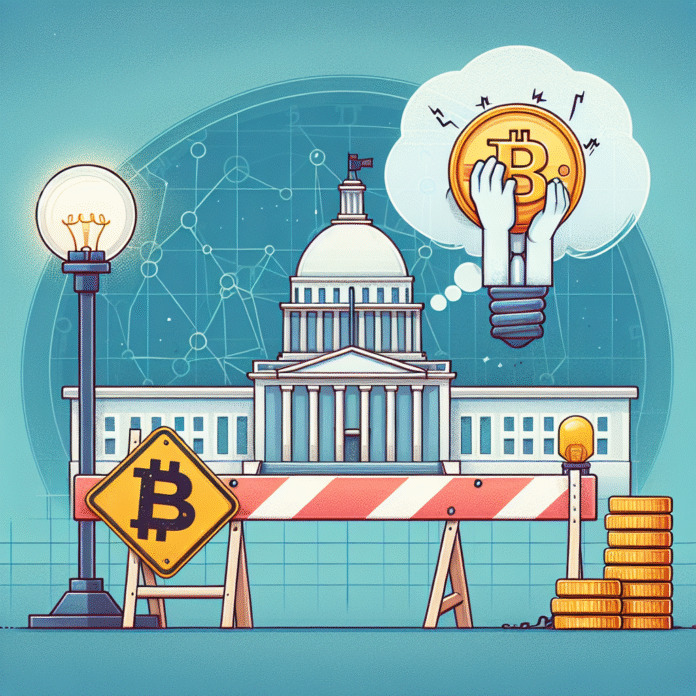GENIUS Act Fails in Senate
Stablecoin Regulation Hits Roadblock
Bitcoinsensus
GENIUS Act Fails in Senate—Stablecoin Regulation Hits Roadblock
In a recent development, the GENIUS Act, which aimed to establish a comprehensive framework for stablecoin regulation, has failed to gain traction in the Senate. This setback highlights the ongoing challenges in creating a cohesive regulatory environment for stablecoins, a rapidly growing segment of the cryptocurrency market.
The GENIUS Act was introduced with the intention of providing clear guidelines for the issuance and management of stablecoins. Supporters argued that such regulations were necessary to ensure consumer protection, prevent financial instability, and foster innovation within the digital asset space. Despite these advantages, the bill faced significant opposition, primarily due to concerns over government overreach and the potential stifling of technological advancement.
One of the major points of contention was the lack of consensus among lawmakers regarding the classification and treatment of stablecoins. Some legislators advocated for a more stringent regulatory approach, while others argued for a lighter touch that would allow the market to evolve organically. This division ultimately contributed to the bill’s failure to pass.
The implications of this roadblock extend beyond the GENIUS Act itself. The absence of a clear regulatory framework continues to leave stablecoin issuers and users in a state of uncertainty. This ambiguity can hinder investment and innovation, as companies may be reluctant to develop new products or services without a definitive understanding of the legal landscape.
Moreover, the failure to regulate stablecoins could exacerbate risks within the broader financial system. Stablecoins are increasingly being used in various applications, including lending, trading, and payments. Without regulatory oversight, there is a risk of fraud, market manipulation, and other illicit activities that could undermine confidence in the cryptocurrency ecosystem.
In light of this situation, stakeholders in the cryptocurrency industry are calling for renewed dialogue among lawmakers, regulators, and industry participants. Many believe that a collaborative approach could lead to more effective and balanced regulations that protect consumers while also promoting innovation.
As the debate over stablecoin regulation continues, it is clear that the need for a cohesive framework remains urgent. With the cryptocurrency market evolving at a rapid pace, timely and thoughtful regulation will be crucial in ensuring the stability and integrity of this emerging financial landscape.
In addition to the ongoing discussions in the Senate, other countries are also grappling with similar issues surrounding stablecoin regulation. For instance, the European Union is in the process of implementing its Markets in Crypto-Assets (MiCA) framework, which aims to provide a comprehensive regulatory approach to various cryptocurrency assets, including stablecoins. This global perspective underscores the importance of international cooperation in addressing the challenges posed by digital currencies.
As we look ahead, the future of stablecoin regulation in the U.S. will likely depend on the ability of lawmakers to bridge ideological divides and create a framework that balances regulation with innovation. The path forward may be complex, but it is essential for the sustainable growth of the cryptocurrency market and the protection of consumers.


